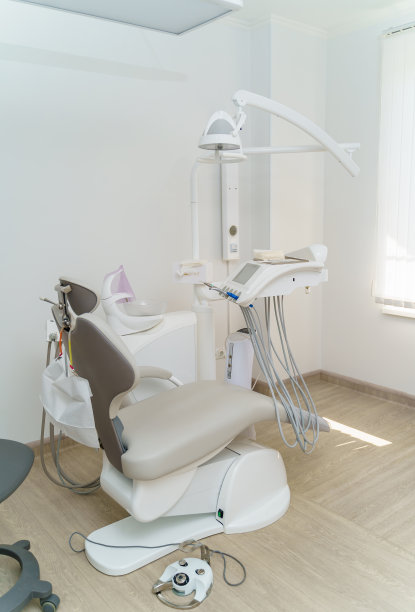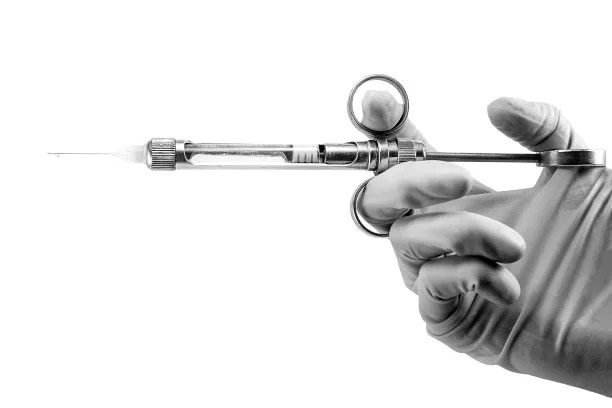Summary: The process of tooth extraction, while often necessary, requires precision and care to ensure optimal oral health outcomes. This article emphasizes the significance of proper techniques and post-extraction care through four essential perspectives: the importance of professional expertise, the role of effective pain management, the need for meticulous aftercare, and the long-term benefits of careful extraction. By recognizing these components, patients can minimize complications and promote better oral health for years to come.
1. The Importance of Professional Expertise

Tooth extraction should always be performed by a qualified dental professional. Dentists are not only trained in the technical aspects of the procedure but are also knowledgeable about the anatomy of the mouth. This expertise plays a crucial role in ensuring that the extraction is performed safely and efficiently. An experienced dentist will recognize potential complications before they arise, significantly reducing the risk of adverse events.
Furthermore, dental professionals can tailor the extraction process to each patients unique needs. This personalized approach helps in mitigating anxiety, ensuring that the patient feels comfortable and secure throughout the procedure. A skilled dentist can also identify whether an extraction can be avoided through alternative treatments, potentially saving the tooth whenever possible.
Moreover, professional expertise extends beyond the actual extraction. Post-operative care provided by dental staff is equally important in preventing infections and promoting healing. Thus, relying on a qualified dentist is vital for both the extraction itself and the subsequent recovery period.
2. The Role of Effective Pain Management
Pain management is a critical aspect of the tooth extraction process. Patients often express significant concern about pain associated with extractions, which can deter them from seeking necessary dental care. Therefore, effective pain management strategies are essential to ensure a smooth experience for the patient.
Modern dental practices employ various anesthetics, both local and general, to ensure that patients experience minimal discomfort during the procedure. The appropriate choice of pain relief not only alleviates anxiety but also allows the extraction to be completed quickly and efficiently. Dentists will assess each patient’s pain tolerance and medical history to provide the most suitable anesthesia.
Post-operative pain management is equally crucial. Patients should receive clear instructions on how to manage discomfort at home, which may include pain-relief medications and recommended lifestyle adjustments. When properly communicated, pain management strategies can significantly enhance the overall experience of the extraction.
3. The Need for Meticulous Aftercare
Aftercare plays a pivotal role in the success of tooth extraction. Following the procedure, patients must adhere to specific guidelines to ensure proper healing. These guidelines often include dietary restrictions, maintaining oral hygiene, and recognizing signs of infection. Adhering strictly to aftercare recommendations can significantly decrease the risk of complications.
Dietary adjustments are particularly important immediately after extraction. Soft foods are usually recommended for the first few days, as they are easier to chew and cause less strain on the extraction site. Additionally, patients should avoid hot beverages and alcohol, which can irritate the area, and smoking, which can hinder blood flow and healing.
Moreover, maintaining cleanliness around the extraction site is vital for preventing infections. Patients should gently rinse with saltwater and avoid vigorous mouth movements for several days. Following aftercare instructions not only facilitates healing but also contributes to the overall health of the surrounding teeth and gums.
4. Long-Term Benefits of Careful Extraction
Understanding the long-term benefits of proper tooth extraction methods is essential for patients. When a tooth is extracted correctly, it can lead to improved oral health and longevity of the remaining dentition. Proper technique minimizes trauma to the surrounding tissues, enhancing healing and reducing the chance of complications like dry sockets or infections.
Moreover, careful extractions prevent future dental issues such as misalignment or neighboring teeth shifting. Maintaining the structural integrity of the dental arch is essential for overall oral function. When a tooth is extracted correctly, it supports the jawbone and the neighboring teeth, which can help in preventing the need for future dental interventions.
Finally, patients who prioritize oral health and follow proper techniques for tooth extraction typically have better outcomes overall. By understanding the importance of these procedures and seeking professional care, individuals can contribute to a lifetime of healthy smiles, making their dental experience more rewarding.
Summary:
The process of tooth extraction is multifaceted, emphasizing the importance of professional expertise, effective pain management, meticulous aftercare, and the long-term benefits that arise from careful procedures. Understanding these components empowers patients to make informed decisions regarding their dental health and maintain optimal oral hygiene.
This article is compiled by Vickong Dental and the content is for reference only.
Vickong Dental
Vickong Dental is a large medical group established in Hong Kong in 2008 by professors from well-known medical universities in Guangdong and Hong Kong, as well as medical doctors from key national '985' universities (including Master's supervisors and senior professors). The chain of branches brings together expert dentists with PhDs and Master's degrees from Hong Kong and Mainland China, committed to providing high-quality dental treatment.
"Vickong Dental Practices the University Motto of 'Healing and Serving Society,' with a Stable Operation for Sixteen Years. It Has Been honored with Hong Kong Enterprise Leaders's Choice,' and is a Global Trusted Implant Center for the Nobel Implant System. Recommended by Hong Kong Metro Broadcast and Guangdong Television, it Serves Customers from Over Thirty Countries and Regions, Gaining the Trust and Favor of Citizens from the Guangdong-Hong Kong-Macau Greater Bay Area and Surrounding Cities.

Thousands of customers' unanimous praise
The most recognized and highly recommended dental service by customers in the Guangdong-Hong Kong-Macau Greater Bay Area
We Ensure You Receive Detailed Care and Attention Here
Hong Kong standards, Shenzhen prices, Your Trusted English-speaking dentists

Vickong Dental Medical-Grade Instrument Disinfection Process
Vickong Dental Medical-Grade Instrument Disinfection Process

Vickong Dental Chain: A Warm and Comfortable Environment for Treatment






Appointment Hours

Q&A
Why choose Vickong Dental?
Vickong Dental practices the university motto 「Medicine to Benefit Society」, with each branch bringing together highly qualified dentists with doctoral and master’s degrees from Hong Kong and the Mainland, and has maintained seventeen years of steady operation。Recipient of 「2024 Hong Kong Enterprise Leaders Brand」, 「2025 Hong Kong Enterprise Leaders Brand」, a Nobel Biocare Global Trusted Implant Center, and a brand recommended by Metro Radio Hong Kong and Guangdong TV。
To date, we have served customers from more than thirty countries and regions,earning exceptionally high word-of-mouth recognition and trusted recommendations from residents across the Guangdong-Hong Kong-Macao Greater Bay Area and surrounding cities
We have eight major branches in Zhuhai、Shenzhen,and a consultation and service assurance center in Hong Kong,so you can book a free consultation at any time for any questions,which is very reassuring.
If I do not accept the quotation after the CT scan, will I be charged??
No! As long as the actual treatment has not started, you will not be charged any fees.
Will there be any additional charges during the treatment process?
No, there won’t be any additional charges. Before treatment begins, we will clearly explain the treatment plan and its corresponding fees. Only after the patient agrees and signs the consent form will we proceed with the dental service.
Can I pay in Hong Kong dollars?
Yes. Vickong Dental accepts payment in Hong Kong dollars. The amount will be converted based on the exchange rate of the day, and the applicable rate will be clearly communicated to you in advance.
Can I reschedule my appointment at any time?
Yes. Please contact us via **WeChat** or **WhatsApp** as early as possible, providing your original appointment time and details, along with your preferred new date and time slot for rescheduling.













